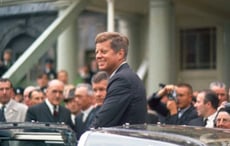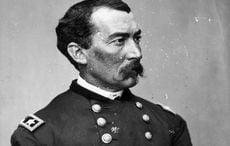| Sully Sullenberger |
The voice on the other end of the phone was amazingly, that of Sully Sullenberger, the Hero on the Hudson, who had landed his stricken plane filled with 155 passengers in the icy waters off Manhattan in January 2009.
He is the last great American hero, an authentic one too, who grabbed responsibility for his plane and the lives of his passengers on that dreadful day when a flock of geese killed his engines and he had only seconds to react.
“Your nephew Rory was a remarkable young man,” he told me, “We should ensure that his death was not in vain and that some good can come out of it."
These days, Sullenberger, Irish on his mother’s side and with daughters named Kate and Kelly, is seeking to change medical treatment as profoundly as he changed our perception that there were no more American heroes.
Soon after my sister and brother in law’s son Rory Staunton died in an horrific medical screw up at New York University’s Langone center, my brother in law Ciaran, told New York Times reporter Jim Dwyer that Rory’s hero was Sully and that he had been inspired by his heroism.
Rory had taken his first flying lesson at age 12 and Sully was his hero ever after, When Sully heard this he took the opportunity to reach out and console my brother in law and sister in a beautiful personal note to them.
It was the one time since their ordeal that I saw both of them crack a smile and give a thumbs up. “Rory would have been so proud,” said Orlaith, remembering how he had idolized the hero pilot.
Amazingly, Sully was also working on the issue that Ciaran and Orlaith will spend much of the rest of their lives on -- ensuring children and indeed, adults, are given proper attention and focus in emergency rooms all over the world.
Rory fell between the cracks, no one at NYU bothered to check out his blood test results even though they showed that he was a very sick but saveable child in the early stages of toxic shock syndrome.
For Sully, Rory epitomized everything that had gone wrong with the system where there was no responsibility, and no chain of command that followed Rory’s treatment from the moment he came to the hospital until he was erroneously checked out.
Sullenbrger wants to make the airline-hospital comparison stick. Due to better safety measures and repeated training, airlines have reduced fatalities ten fold. If such steps were taken in hospitals, countless lives would be saved, he points out.
Sullenberger has advised hospitals that the current mindset that “accidents are inevitable” must be changed to “accidents are unimaginable.”
As he said to Maureen Dowd in her column on Rory, "If something good comes from Rory's death, it will be that we realize we have a broken system...Patient care is so fragmented. For the most part, medical professionals aren't taught these human skills that some deride as 'soft skills.' So there's insufficient sharing of information and ineffective communication.”
Amen to that, and a seal of approval to Sully as he continues his latest mission to cut down on tragic hospital mistakes. There is yet another reason to be proud of this authentic American hero.




Comments